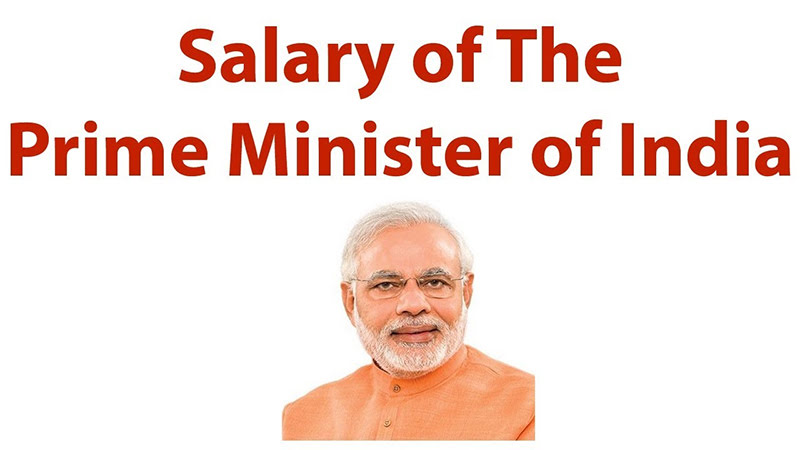In addition to a monthly salary of 1,60,000 INR, the Prime Minister of India receives a salary of 19,20,000 INR annually. The complete compensation of the PM of India incorporates a fundamental compensation of 50,000 INR alongside different remittances, advantages, and advantages. We’ve gone over the Prime Minister of India’s salary, perks, and benefits in detail in this article. The Prime Minister of India is known to be the most noteworthy positioned political clergyman of the country, filling in as the head of government and head of the presidential branch.
Prime Minister of India Salary
Everyone in the nation has always been aware of the fascinating fact that the Prime Minister receives a salary. The President appoints the Prime Minister for the entire nation every five years, which is a significant event. After a large number of rounds in each state, a political party wins a chance to rule the government as the head of state in the country. Typically, this person is the leader of the political party or coalition with the most seats in the Lok Sabha, which is the lower house of the Indian Parliament.
Appointment of Prime Minister of India
India selects its Prime Minister through a multi-step process. After broad races, the head of the party or alliance with a larger part in the Lok Sabha is welcomed by the President to turn into the Prime Minister. The leader of the largest party or coalition is invited to form the government and demonstrate their majority in a confidence vote if there is no clear majority. The Prime Minister is in charge of choosing Cabinet members and deciding on policy.
Read More:-
Documents Required for Passport in India
Third Schedule of the Indian Constitution
As indicated by the Third Schedule of the Indian Constitution, the State head of India makes the vow of office upon appointment. The President of India or a person appointed by the President administers this solemn oath. The oath includes a promise to honor India’s constitution, uphold the country’s sovereignty and integrity, and diligently perform duties without favor or fear.
Term of Prime Minister of India
The Prime Minister of India is subject to the political circumstances at the time because there is no fixed term in the constitution. They remain in office with the majority support of the Lok Sabha and serve at the President’s pleasure. Their term typically coincides with the five-year term of the Lok Sabha, but it may be shorter or longer in the event of a hung parliament or a loss of majority support.
Roles & Responsibilities of the PM of India
- Critical decisions regarding the nation’s policies and governance are made by the Prime Minister and Cabinet.
- The State head fills in as the central guide to the Presidentof India on different issues.
- The Prime Minister is in charge of the procedures of the Lok Sabha and ensures that it runs smoothly.
- The Prime Minister is in charge of the National Security Council, which advises the government on matters pertaining to national security.
- The State head effectively manufactures and keeps up with associations with different countries while addressing India at worldwide social affairs and gatherings.
- The Prime Minister is answerable for creating and executing financial policies aimed at advancing development and improvement in the country.
Read More:-
Eligibility to Become the Prime Minister of India
According to Article 84 of the Indian Constitution, certain eligibility requirements must be met in order to become India’s Prime Minister:
- To be eligible for the Lok Sabha and the Rajya Years, the individual must be 25 years old or older.
- It is against the law to hold any office in a local or state government controlled by the central or state government.
- The competitor should be an individual from either the Lok Sabha or the Rajya Sabha.
Skills of the Prime Minister of India
- Strong leadership skills are essential to move and inspire peopleand lead the country towards progress.
- A profound comprehension of the political landscapeand the capacity to explore complex political elements is pivotal.
- The Prime Minister needs to think strategically and make well-informed choices that will have an impact for a long time.
- It is essential to communicate effectively with citizens, the media, and world leaders.
- Strong diplomatic skills are required to effectively represent India on the global stage and to maintain positive international relationships.
- The capacity to oversee emergencies actually and go with fast choices in crises is pivotal.
- It is essential to have an understanding of economic policies and how they affect the growth and development of the nation.
Read More:-
Centrelink Payment Schedule July
Final Words
The Prime Minister stands firm on the highest executive position and is the top of the public authority in Indian majority rules government. Dissimilar to standard representatives who get pay rates or checks, the Prime Minister gets a proper sum known as recompenses to cover living expenses. Together with the basic pay, these allowances amount to 1.6 lakh per month. The Prime Minister receives a basic salary of 50,000 yen per month, with an additional 6,000 yen for office and household expenses each month.
